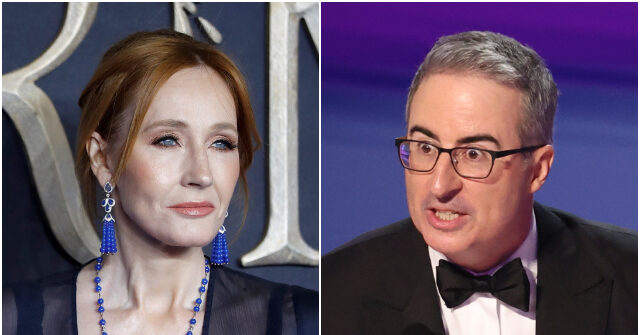In a recent public exchange, author J.K. Rowling challenged HBO host John Oliver’s assertions regarding transgender athletes competing in women’s sports. Oliver voiced his belief that the integration of trans individuals in these spheres posed no risk to fairness or safety in athletics. This dialogue emerged in a broader context where the Democratic Party, reeling from electoral defeats including Donald Trump’s recent victory over Kamala Harris, is grappling with how to navigate the controversies surrounding transgender rights, particularly in competitive sports, women’s spaces, and public facilities.
While Oliver and others argue for a stronger commitment to transgender inclusion, prominent figures within the Democratic Party, such as comedians Bill Maher and Ben Dreyfuss, have expressed concerns about the implications of such advocacy. The discussions revolve around the impact on women’s sports, with proponents of a more cautious approach feeling that the party must reassess its stance on issues that could alienate voters. These debates highlight the growing tension within left-leaning America concerning how to balance inclusivity with the concerns of women athletes who feel underrepresented or endangered by the participation of transgender women in their competitions.
Rowling’s response to Oliver underscored her stance that debates surrounding this issue often rely on flawed reasoning. She argued that while there are indeed very few trans girls participating at high school levels, the ramifications of such participation could still adversely affect cisgender female athletes. Citing the UN’s report of nearly 900 medals being lost to trans-identified male athletes competing against women, Rowling provided personal anecdotes, including a serious injury suffered by a female athlete, to assert that the integrity of women’s sports is at risk. Her remarks seek to draw attention to the physical and competitive inequities that may arise from current advocacy for transgender inclusion in women’s athletics.
Rowling criticized John Oliver, whom she once admired for his philanthropic efforts, for what she categorized as “motivated reasoning” and a neglect of objective data. She lamented that intelligent individuals can sometimes distort facts to align with a narrative that they wish to support. The author expressed frustration that many advocates do not address the palpable concerns of female athletes, dismissing them as overly vocal minority perspectives rather than legitimate grievances about safety and fairness in competition.
Throughout her critique, Rowling emphasized the need for honesty in discussions about transgender inclusion in sports, urging advocates like Oliver to confront the likelihood of injury and disadvantage facing female athletes. She recognized the tension between advocacy and empirical evidence, suggesting that acknowledging these consequences would provide a more nuanced and responsible approach to policy-making regarding women’s sports. This calls into question the broader implications of ideological commitments that may leave real-world consequences unchecked in the name of progress.
In a supportive comment, transgender athlete Sara Higdon corroborated Rowling’s views by sharing her personal experiences. Despite identifying as transgender and having undergone hormone replacement therapy, Higdon acknowledged that she retained physical advantages that could alter competition outcomes if she were to participate in women’s sports. This testimony highlighted the complexities of inclusivity when physical disparities in athletic performance come into play. Ultimately, the discussions around transgender participation in women’s sports continue to spark passionate disagreements as advocates and detractors strive to find a balance between rights, safety, and fairness in the evolving landscape of athletics.

